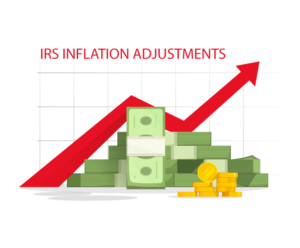The Tax Side of Dealing in Collector Cars

The tax side of dealing in collector cars can be quite interesting. Are you a collector? People collect all kinds of different things, including stamps, art, sports cards, jewelry, coins and cars to name just a few. Speaking of collectors, collectibles can be a great hobby but they can also draw the attention of the IRS, one of the greatest collectors of all time.
Collector Cars Are Not Tax-Free
Cars, particularly classic ones, have always been a popular collectible. However, there several tax issues surrounding collectible cars that you should be aware of. It’s no secret that the IRS loves to make waves with its investigations. Well-to-do car collectors who decide to skimp on their full tax bill are the perfect targets for the IRS to make examples of.
How Much Do You Owe?
So let’s take a look at some of the issues you should know about when collecting cars as well as some tips to make sure you’re paying the proper amount of tax on your collector cars.
Collectible Taxes & Deduction:
- Capital gains tax on collectibles: Ordinarily, capital gains on property that has been held for at least one year are subject to either a 0%, 15% or 20% tax rate depending on your income, however gains on collectibles such as cars are given a special 28% tax rate[1].
- When you sell a collector car you can also write off some of the expenses from your profit and thus lighten the tax burden. Any money you spend to restore or sell the car can be subtracted from your profit. However, make sure you keep good records.
- When it comes to purchasing a collector car, you will also be liable for state sales tax on that car if you drive it away. If you have it shipped somewhere else, then you will have to pay sales tax to the state where you have it shipped.
- One option some collectors try to pursue is to obtain a dealer’s license. This will allow them to avoid any state sales tax altogether. However, be careful, if you are actually a collector and not really a dealer, then you would actually be making a false claim to your state, which could land you in hot water. On top of that, you might have difficulty insuring your vehicles.
More Forms
You will also need to be prepared to fill out additional forms with your tax return when you have capital gains and/or losses. All of the important details of the sale of your vehicle will need to be reported on Form 8949. Then, combined with your capital losses, the information will be put on Schedule D where you will need to tally your net gain or loss.
We hope you found this updated article about the tax side of dealing in collector cars helpful. If you have questions or need expert tax or family office advice that’s refreshingly objective (we never sell investments), please contact us or visit our Family office page or our website at www.GROCO.com. Unfortunately, we no longer give advice to other tax professionals gratis.
To receive our free newsletter, contact us here.
Subscribe to our YouTube Channel for more updates.
Considerately yours,
GROCO, GROCO Tax, GROCO Technology, GROCO Advisory Services, GROCO Consulting Services, GROCO Relationship Services, GROCO Consulting/Advisory Services, GROCO Family Office Wealth, and GROCO Family Office Services.
[1] https://www.irs.gov/taxtopics/tc409#:~:text=Net%20capital%20gains%20from%20selling,at%20a%20maximum%2025%25%20rate.
Athletes Could See Big Tax Savings With Trump Proposals
It’s no secret that Donald Trump’s proposed tax plans would definitely benefit the nations’ wealthiest individuals. The president elect has made it clear he wants to overhaul our country’s tax system and his stated proposals indicate that the wealthy will see a healthy increase in the amount of money they get to keep. Among…
Tax Tips for Entrepreneurs
If you’re looking to start a new company in the coming year then you certainly have a lot on your mind, not the least of which is how you will get started, what will you do to market your company and what are your chances of achieving success. The concerns and issues are endless…
IRS Announces New Inflation Adjustments for 2017
While the 2016 tax year is still not quite over, the IRS has already announced some important inflation adjustments for the 2017 tax year, which taxpayers will file for in 2018. While you might be more worried about your upcoming tax return, there are some important changes to know about. However, that being said,…
IRS Changes Deadlines for 1099 Forms
It’s almost January. Are you ready for taxes? Of course, Form 1099s are an important part of any tax season, and this coming year will be no different. As a taxpayer, if you receive any kind of Form 1099 don’t ignore it. The IRS will get the same form and you will be held…




